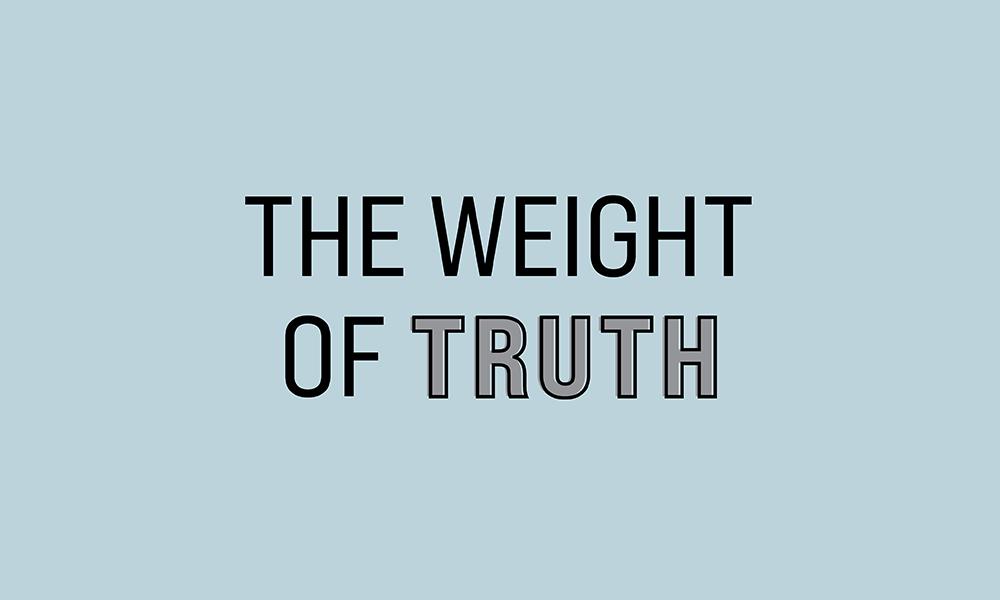
The Weight of Truth
An outstanding passage in the II Vatican Council Declaration on Religious Freedom, Dignitatis Humanae states:
An outstanding passage in the II Vatican Council Declaration on Religious Freedom, Dignitatis Humanae states:
Truth can impose itself on the mind of man only in virtue of its own truth, which wins over the mind with both gentleness and power.
Truth has its own weight. Think of times you said or did something impulsive. “I could have been more patient.” “I judged her too quickly.” These reflections can also be prospective. “I am lonely without God in my life.” Often these reflections are joined with the decision to act differently in the future. Or the truth may include understanding faith personally, such as, when praying the Stations of the Cross, pondering the depth of Our Lord’s suffering.
The Declaration states succinctly, “It is through his conscience that man sees and recognizes the demands of the divine law. He is bound to follow this conscience faithfully in all his activity so that he may come to God, who is his last end.”
In summary, truth carries its own weight. More accurately: truth and goodness carry the full weight.
Each person seeks and accepts truth; it cannot be forced. Within each person is one’s “own core and sanctuary” in which an individual is alone “with God whose voice echoes in his depths.” (Gaudium et Spes [Joy and Hope]) We are accountable for our actions. We grapple with our emotions; we make moral decisions. Do our decisions match with what we know to be true and good?
St. John Paul II questioned whether we are living in an age described as an eclipse of the conscience (Penance and Reconciliation) - that is, a clouding of our sense of right and wrong.
Yet within each person is an inner drive toward truth and goodness. Each person is inclined toward the good, which is bestowed by God. And the inclination toward the good is, in fact, stronger than the tendency toward sin. Choosing well repeatedly, like any habit, becomes more powerful or strengthened over time. In the alternative, the inner voice is almost crowded out when repeatedly ignored – thus, the eclipse of the conscience.
Our Faith teaches that the “inner voice” is not a voice in the dark, but the Spirit of truth leading us to act in accord with our reason. We never feel ready to change attitudes and behaviors and to follow the Lord. Yet the Spirit of truth leads us toward inner change, greater compassion and generosity.
Sister Mary Judith O’Brien, RSM is a member of the Religious Sisters of Mercy of Alma. She serves as chancellor of the Catholic Diocese of Saginaw.



